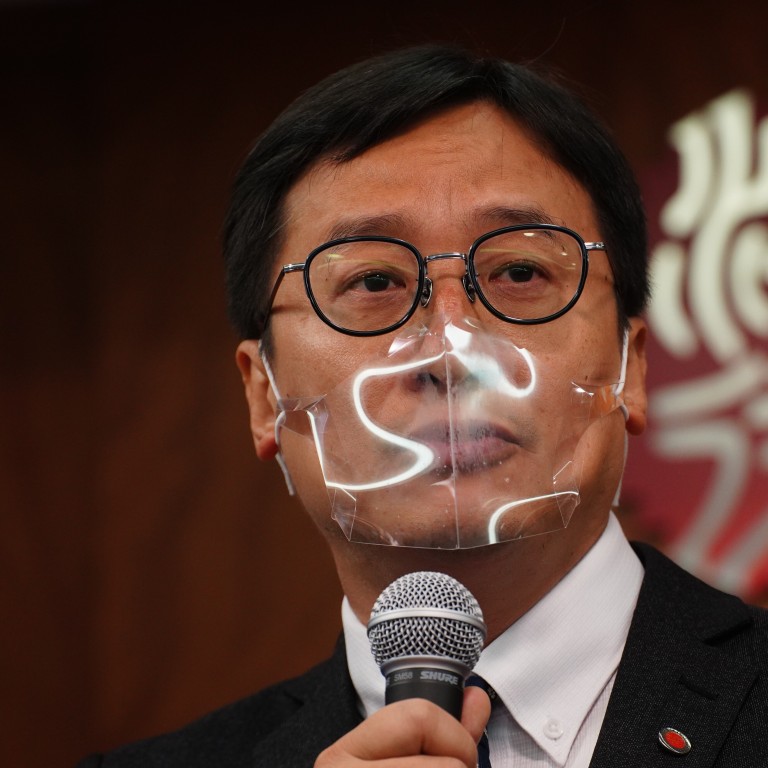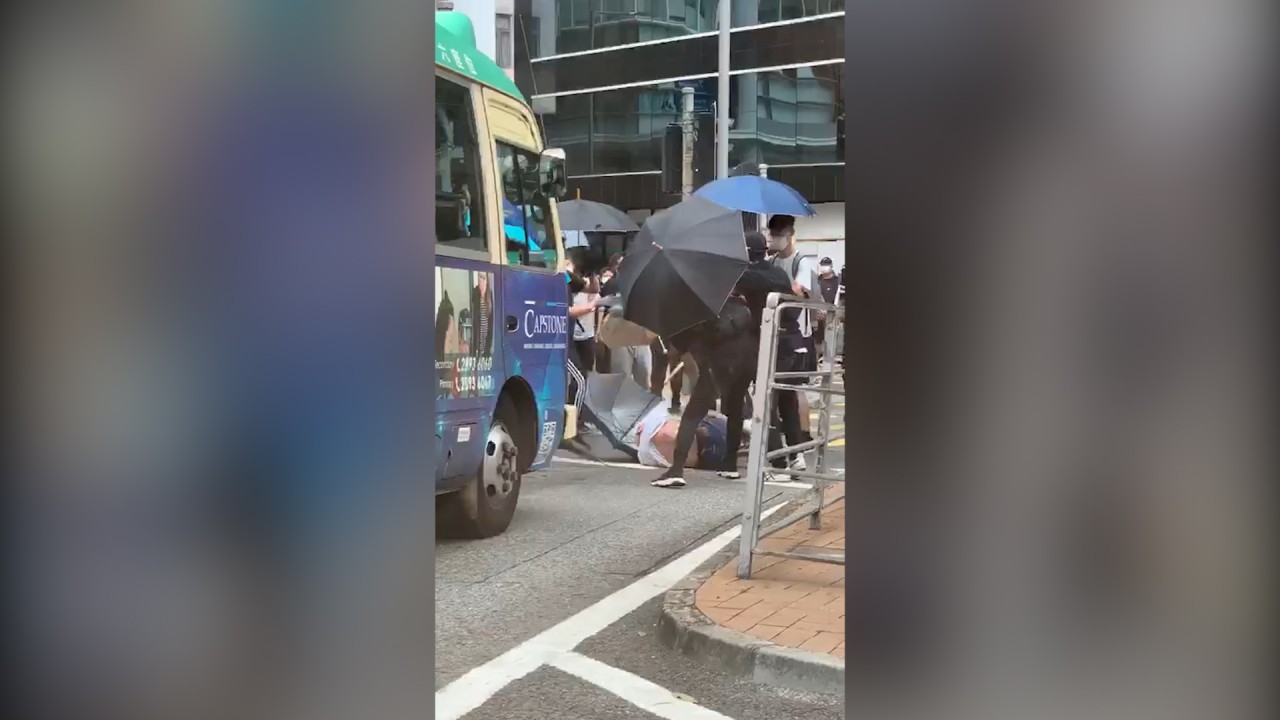
Hong Kong Law Society will offer legal perspective only when it comes to social issues, new president says
- Chan Chak-ming, who ran uncontested, insists Carrie Lam’s warning that the body risked its ties with the city if it became politicised was ‘not a criticism’
- His election came just hours after Eric Cheung, a more liberal member of the body’s governing council, announced he was stepping down early
Chan Chak-ming, a former vice-president, ran uncontested on Tuesday in the 12,000-strong group’s presidential election, replacing Melissa Pang Kaye, who stepped down after serving three one-year terms since 2018.
“Our new leadership will do our best to safeguard the rule of law and other issues people are concerned about,” Chan, a lawyer of 24 years, said. “We will not shy away from them. But we will only comment on them from a legal point of view.”
On Monday evening, just hours before the election, Eric Cheung Tat-ming, a University of Hong Kong law lecturer known for his more liberal stance, revealed he was stepping down from his role on the legal body’s governing council.
But Chan, who is identified with the Law Society’s conservative faction, shrugged off suggestions that the exit was a vote of no-confidence, noting Cheung’s decision had been made well before he officially tendered his resignation on Tuesday.

00:27
Hong Kong’s Law Society reveals a member was assaulted and condemned the attackers
Chan, once a member of the political consultative conference of the eastern Chinese city of Jinan, is also a consultant of the Hong Kong Policy Research Institute, a think tank led by former pro-establishment lawmaker Jasper Tsang Yok-sing.
Three vice-presidents were also elected on Tuesday: newcomers Roden Tong Man-lung and Christopher Yu Kwok-kin, and incumbent Amirali Nasir.
The change of leadership comes amid a turbulent chapter for the 114-year-old legal body, long known for taking a more conservative approach than its counterpart, the Hong Kong Bar Association.
Before the polls, Chief Executive Carrie Lam Cheng Yuet-ngor had warned the legal body risked its ties with the government if it became politicised, pointing to the ostracised and disbanded Professional Teachers’ Union. A similar admonishment was delivered by state mouthpiece People’s Daily.
Quieter Law Society elections this year as candidates avoid politics
In the end, three liberal candidates lost by a wide margin to their internal rivals, who filled all five of the seats up for grabs.
One liberal contender, Jonathan Ross, withdrew his candidacy 10 days before the polls, citing unspecified fears for the safety of he and his family, calling it a “shameful and sad day for Hong Kong”.
Chan on Tuesday said the council had put great effort into making its elections transparent and that members were welcome to offer up their views on how the Law Society could improve.
Asked about chief executive’s warning, he said: “I have heard certain opinions, but I don’t think it was a criticism.” He also stressed the Law Society’s status as a self-regulatory body.

Chan was among 600 Hong Kong lawyers who took a pioneering exam last month that would allow them to practise commercial law within the wider region.
On the night before Tuesday’s election, Cheung, the HKU lecturer, wrote on his Facebook page: “Given my various priorities and commitments, I have been struggling hard to continue to discharge my duties as a council member of the Law Society responsibly.”
A solicitor, Cheung’s tenure with the Law Society’s Council was expected to end next year, but he said he had decided to step down early to make room for other causes.
Conflicting views on Law Society poll won by anti-politicisation bloc
“I had decided to resign early from the council irrespective of the outcome of the election, so that I may focus on my other priorities, particularly in the provision and promotion of pro bono legal services, while maintaining a more balanced life, with quality time for my family and friends,” Cheung wrote.
“I sincerely hope that the Law Society Council will continue to have a good mix of members with diverse backgrounds and ideologies, who can live up to a high standard of integrity, and truly share the values of maintaining political neutrality and professionalism in the work of the Law Society as a professional body.”
Cheung declined to elaborate further on his decision when contacted by the Post, saying only that he wanted to “focus on areas” of his interest.
Former president Pang said she had received Cheung’s resignation, with immediate effect, on August 30.
“The Law Society respects Mr Cheung’s decision and would like to express its gratitude to him for his contribution and service,” she said.
Lam warns city officials could cut ties if legal body puts politics over professionalism
Under the body’s rules, Pang added, the council had the power to appoint a replacement to temporarily fill the vacancy until next year’s election.
Human rights lawyer Mark Daly, a council member, said he hoped the Law Society could get back to contributing to the development of human rights laws “without the polarised politics”.
Aside from his lecturing, Cheung is also director of HKU’s clinical legal education programme and one of the 30 solicitors granted the rare standing to appear before the High Court and Court of Final Appeal, something generally reserved for barristers.
Recently, Cheung helped a 20-year-old man overturn a drug-trafficking conviction and 23-year jail sentence in a case that drew criticism of the prosecutors by judges.
The man, who spent five years in jail, had played a minor role in the crime and was given legal advice by an assistant paid for by the brother of his co-defendant.
Appeal judges took issue with the oversight of the Department of Justice’s decision to proceed with the prosecution, even though the co-defendant, who appeared to have a more substantive role, did not stand trial.

